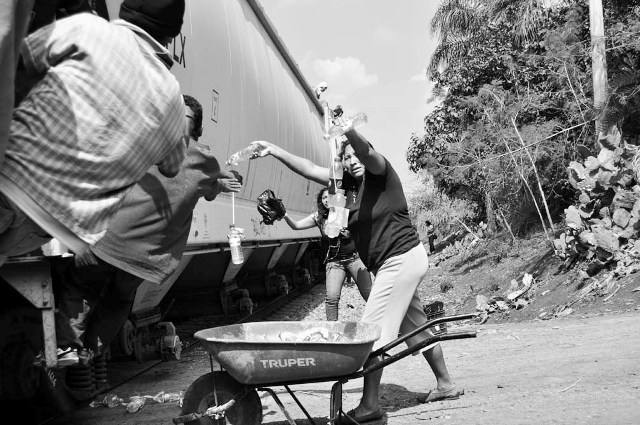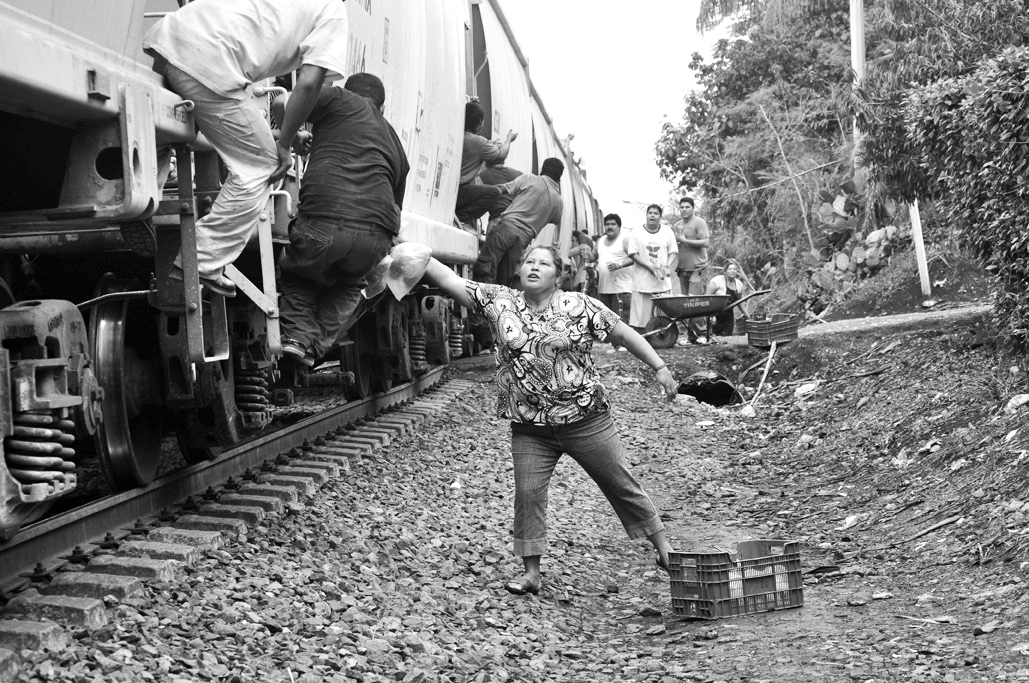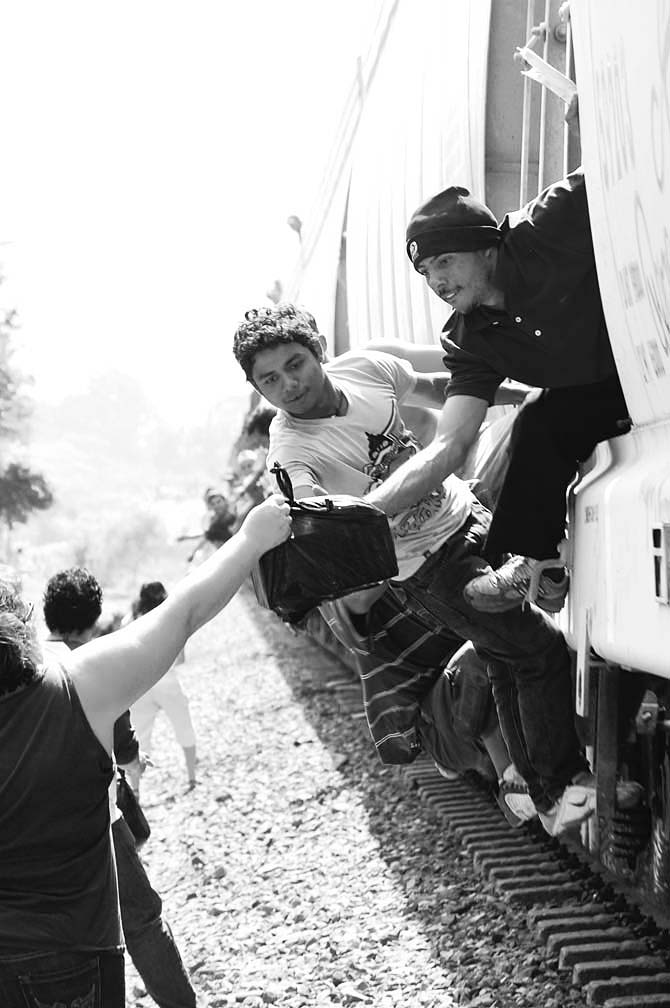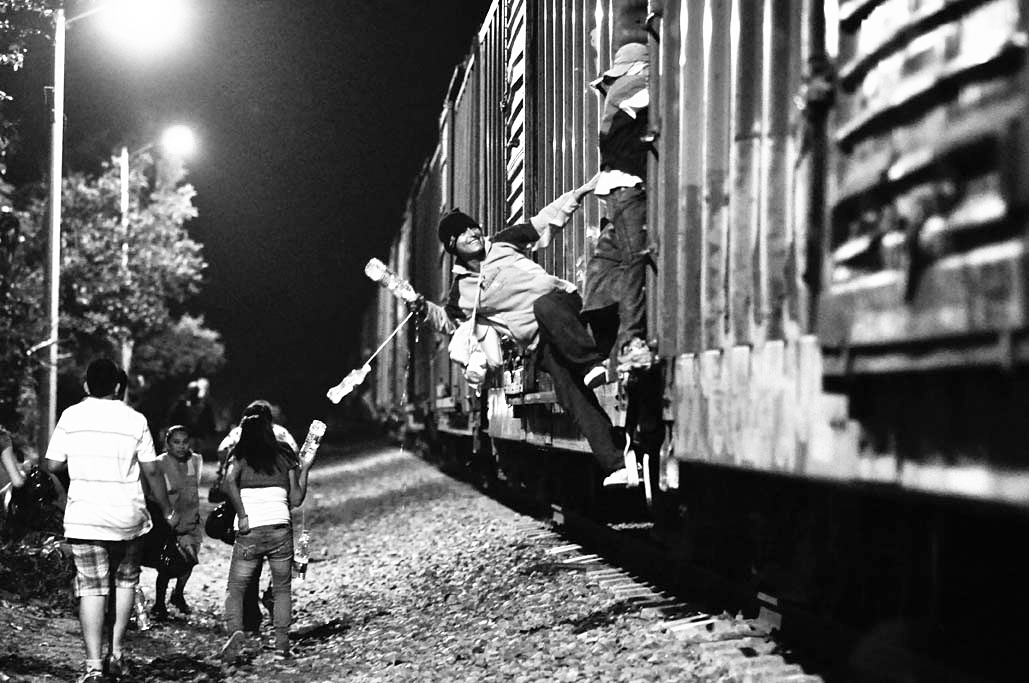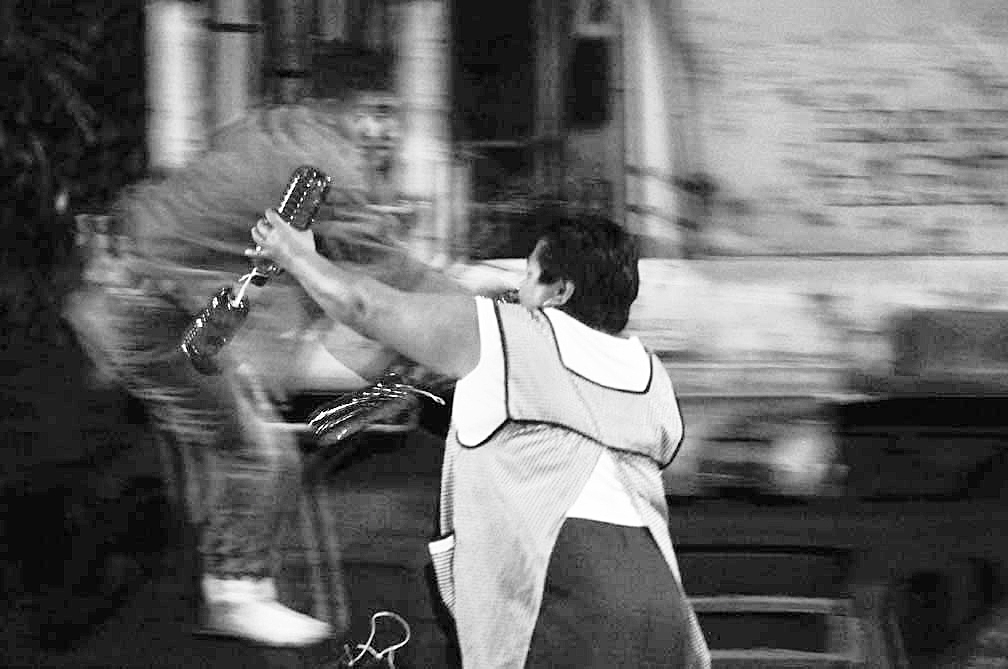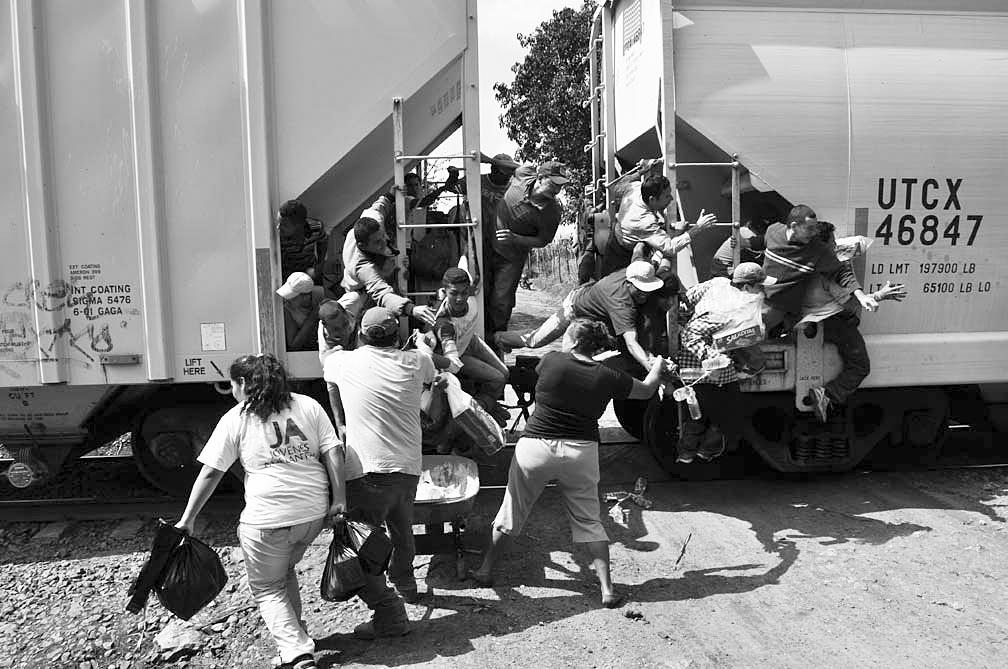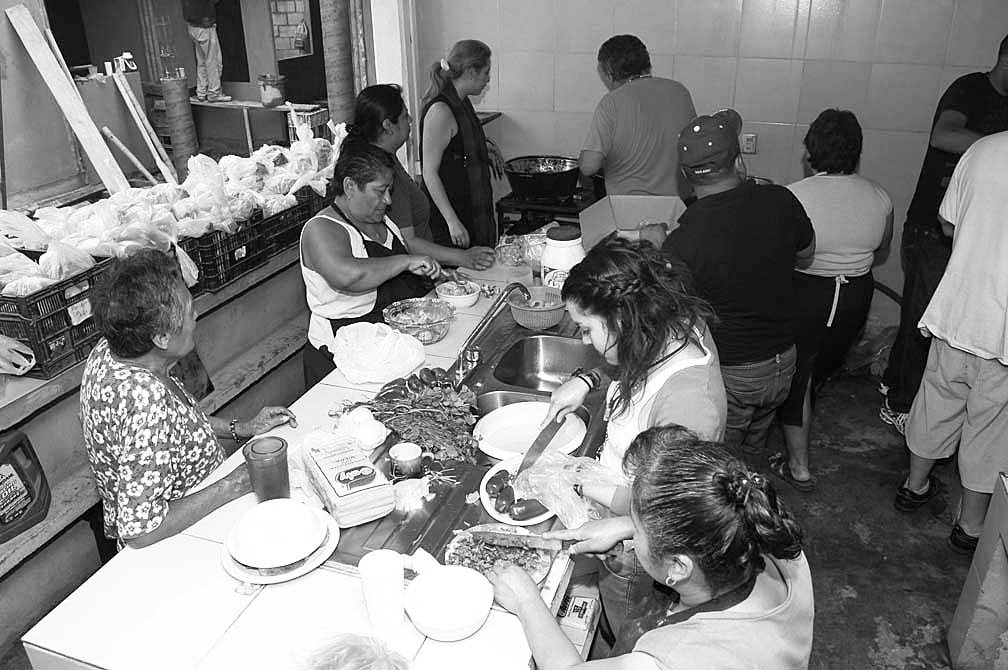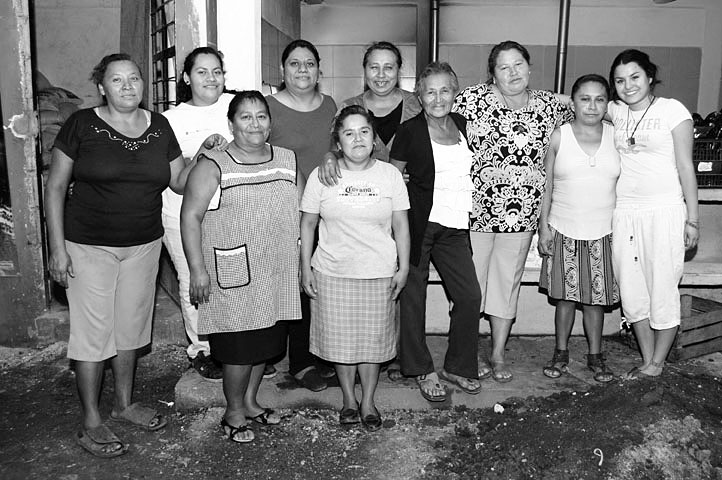(Veracruz, Mexico) –– For seventeen years, a group of women in La Patrona, Veracruz, has been handing out food and water to Central American migrants riding cargo trains north in search of work.
Their story began in February, 1995 when two sisters, Bernarda Romero Vázquez and Rosa Romero Vázquez, were standing with their groceries at a train crossing in the village, waiting for the train to pass.
Relacionado → Padre Alejandro Solalinde, a brother on the road for many; a threat for others
Migrants on the first train car began shouting, “Madre, I’m hungry.”
The shout was picked up by people on the second car. When shouts came from a third car, the women tossed them their food.
“It’s wrong,” said Bernarda “…here we have beans, tortillas and a cup of coffee, and they have nothing.”
Soon after, Bernarda and Rosa met with their parents and other siblings and the family decided to hand out food and water to migrants. The women, who have come to be known as Las Patronas, haven’t missed a day in seventeen years.
“(Before,) we didn’t know that migration existed. We thought that they were Mexicans who were venturing to see all of our country,” says Norma, Bernarda’s sister and the group’s spokeswoman.
The migrants are coming mainly from Guatemala, Honduras and Salvador, with a few from Nicaragua. Most are hoping to make it to the U.S. to find work but first they must make it through Mexico, where they risk being robbed, beaten, kidnapped, murdered. The passage through La Patrona is one of the few bright spots on their trip.
Map of La Patrona, Veracruz,
There are currently fifteen women in Las Patronas and they’re all volunteers. They begin cooking about 9:30 in the morning and finish their work around 9:00 at night. In the beginning, the women donated all the food and cooked it in their individual houses. Now, they get much of the food donated and work together in a large kitchen built on land donated by Crisoforo Romero Arragan, Bernarda and Rosa’s father.
“My mother would make her food and then increased it,” said Norma. “My other sister would make her food and then increased it, too. Little by little we were taking more lunches and from there we organized to give more meals.” Norma, Bernarda and Rosa’s mother, Leonila Vázquez Alvizar, and two other of their sisters are also part of Las Patronas. “The poor people…all of them say, ‘Madre, madre, thank you,'” Leonila says. “This is the satisfaction that we keep in our hearts. They give us thanks.”
The trains have no set schedule. Some days, only one train passes by. Other days, it may be as many as three. The women meet every one. They don’t get paid in money but, Norma said, “I believe that the best payment that we get is the blessings of all these people who pass through.”
© 2012 - 2024, Joseph Sorrentino. All rights reserved.

